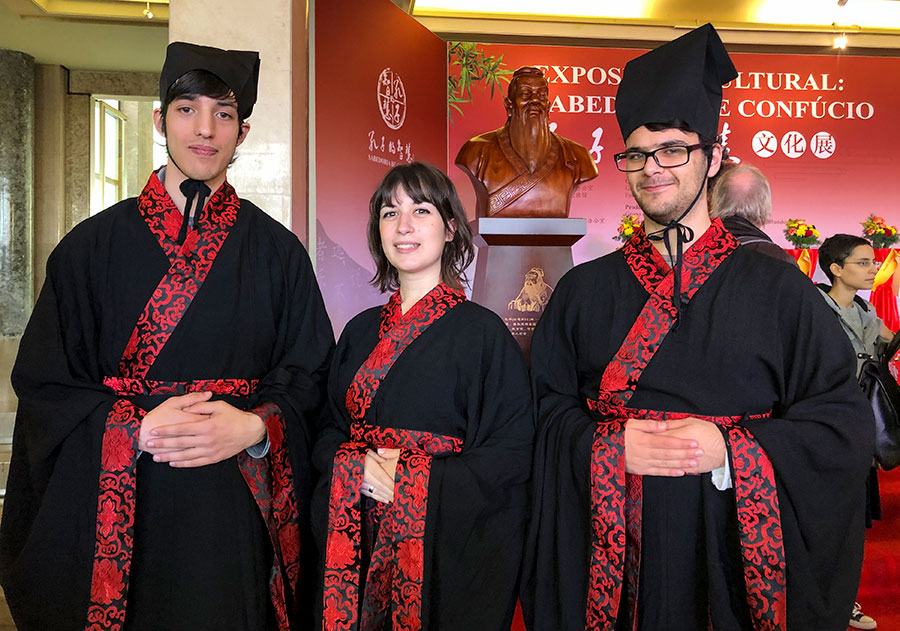Confucius Institute can help eliminate cultural ignorance and illiteracy


For a journalist, not being able to understand what an interviewee is saying is truly awkward. My latest experience, however, is one of both embarrassment and excitement.
I was talking on WeChat recently with Nicholas Kovacich, an Italian high school student, when he quoted, in classical Chinese, words by Matteo Ricci (1552-1610), an Italian missionary who spent much of his life in China.
I could not grasp the exact meaning of the words. So Kovacich, who likes to be known by his Chinese name Qi Yuanhang, explained what they mean: that China and Italy, two nations with long histories, will have a lasting friendship.
Yuanhang, meaning voyage, is among a group of students I met at the Convitto Nazionale Vittorio Emanuele II international high school on the banks of the Tiber River in the northwestern part of Rome. I knew that I would meet students who had immersed in Chinese language, culture, history and geography in the school's Confucius Classroom, but I did not expect them to be so good that our conversations would be conducted entirely in Chinese.
They talked about how they enjoyed ordering food delivery on mobile phone apps in Shanghai and Beijing during their summer camps there. They also talked about their favorite Chinese foods such as xiaolong baozi (a juicy Chinese steamed bun from the Shanghai area) and some weird Chinese foods they have tasted, such as scorpion.
"It was delicious," said Doriana Bruno, who introduced herself by her Chinese name Ru Duoer.
Francesco Alario, an official of the high school, and Eugenio Gaudio, rector of the Sapienza University of Rome, the largest university in Europe, were excited about the Confucius Classroom and Confucius Institute first set up in their respective schools more than a decade ago. They said the collaboration with Chinese partners has benefited both students and faculty.
Rome is not alone. The Chinese songs and wushu (Chinese martial art) performed by Belgian students at the Chinese Lunar New Year gala at the KU Leuven in February was simply fascinating.
Other Confucius Institutes I have visited-from Lisbon and Havana to Washington-h(huán)ave been equally impressive given their students' enthusiasm to learn the Chinese language and culture and their very supportive school leadership.
Despite some Western politicians' efforts to spread canards against them, Confucius Institutes are not much different from similar institutions launched by Western countries, such as Cervantes Institute by the Spanish government in 1991 and Alliance Francaise by France as early as 1883. Both of them are in China.
After being posted at Brussels five months ago, I am eager to learn everything about Europe. I can't wait to enroll myself in language schools such as Alliance Francaise to brush up the French I studied as a teenager. I wouldn't make a fuss about the French or European influence on Chinese people like some Western politicians do about Chinese influence on Western people.
I saw that same eagerness in the students at the Confucius Institutes and Confucius Classrooms. Kovacich, who is scheduled to graduate from high school this summer, said he will attend Duke Kunshan University outside of Shanghai.
US senators Marco Rubio (Florida) and Ted Cruz (Texas) have been campaigning against Confucius Institutes in their states. They have taken the campaign to Capitol Hill, too. They are probably among the people who believe all Chinese people with the family name Zhang are closely related.
For their information, there are 95 million Chinese with the family name Zhang in China. And 63 million Chinese have the surname Chen, and we are not really related.
Confucius Institute can help remove such ignorance and illiteracy.
The author is chief of China Daily EU Bureau based in Brussels.


































